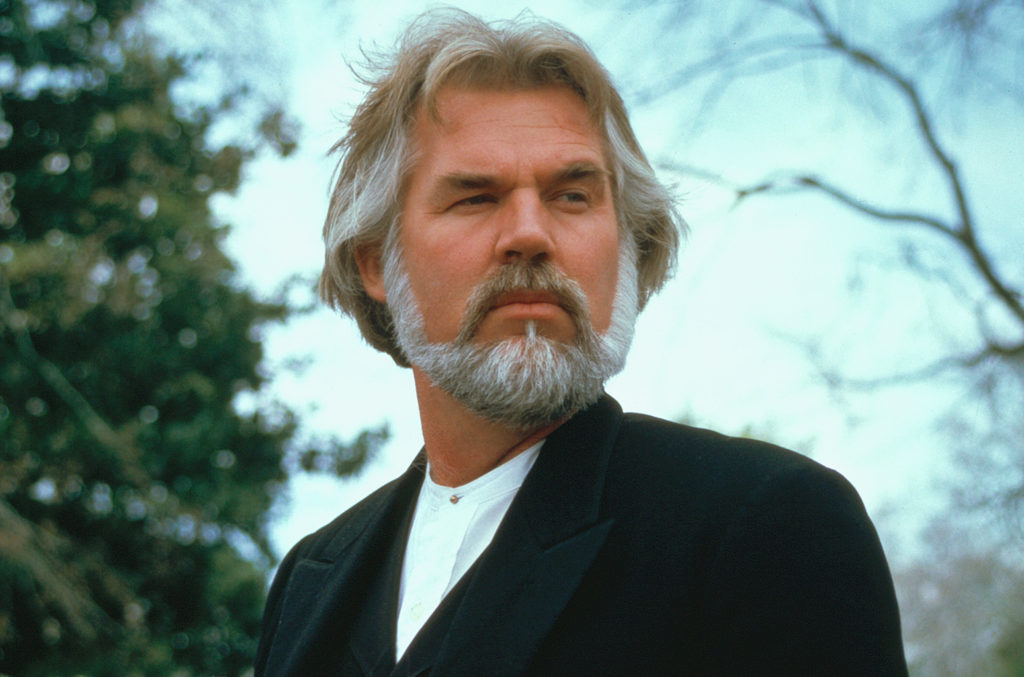It may be hard for people who weren’t born yet in the late ’70s and early ’80s to appreciate just how dominant a figure Kenny Rogers was in both the pop and country scene in those years.
Rogers, who died on Friday (March 20) at age 81, was arguably the hottest star in the music business in 1980, the year that “Lady” topped the Billboard Hot 100 for six weeks and Kenny Rogers’ Greatest Hits topped the Billboard 200 album chart for two weeks. Rogers turned 42 that year, which is old to be the hottest act in the business. Michael Jackson, who turned 25 in 1983 — the year Thriller electrified the pop world — better fits our collective image of what the hottest pop star in the business should look and move like.
Many who grew up on the VMAs and TRL probably think that Rogers was a little old and, well, unexciting, to be a pop megastar. But, having lived through those years, I assure you he was.
Think about it: Kim Carnes was a B-level hitmaker who had had only one previous top 40 entry on the Hot 100 when she sang a duet that year with Rogers, “Don’t Fall in Love with a Dreamer,” which ended up going top 5. Likewise, Lionel Richie was just the lead singer in Commodores, the perennial runners-up to Earth, Wind & Fire as the premier pop/R&B group of that era, when he got the call in 1980 to write and produce a song for Rogers. (That song, of course, was “Lady,” Rogers’ first Hot 100 No. 1.)
The association with Rogers and their respective collaborative hits sent both of their careers soaring. Carnes’ “Bette Davis Eyes” and Richie’s “Endless Love,” a duet with Diana Ross, each topped the Hot 100 for nine weeks in 1981. Richie officially left Commodores and launched a solo career in 1982, which ended up making him an enduring superstar. Would he have hit that level without Rogers giving him that boost? That’s unknowable. In any event, it was a huge break in Richie’s career.
Rogers would go on to win enough awards to fill a museum. He amassed 19 American Music Awards, a total equaled or bettered by only four other artists in the show’s long history. (Taylor Swift leads with 29 AMAs, followed by Jackson with 24, Alabama with 23 and Whitney Houston with 22.) Rogers won the AMA Award for favorite country album five times. That was the record for that category until last year, when Carrie Underwood won in the category for a sixth time.
Rogers also won 10 Academy of Country Music Awards, including the 1978 award for entertainer of the year. He was just the second artist (following Glen Campbell) to win the ACM Award for single record of the year twice. — taking the award for “Lucille” (1977) and “Islands in the Stream,” a collab with Dolly Parton (1983). Rogers won five Country Music Assn. Awards, but never managed to win entertainer of the year. He took three CMA Awards in 1979, but lost the big one to Willie Nelson, who won no other CMA Awards that year.
There are omissions and oddities at every awards show, but Rogers’ failure to ever win entertainer of the year at the CMAs—despite five consecutive nominations from 1977-81—just feels wrong. In those years, Rogers all but defined what was possible for an entertainer in country music. (Rogers hosted that 1979 CMA show, by the way.)
Finally, Rogers won three Grammys — twice for best male country vocal performance (“Lucille” in 1977 and “The Gambler” in 1979) and once for best duo country vocal performance (for Ronnie Milsap collab “Make No Mistake, She’s Mine” in 1987). The latter song marked a reunion of sorts with Carnes, who wrote the song and recorded it in 1984 in a collab with Barbra Streisand. Rogers was also Grammy-nominated for both album and record of the year for The Gambler and its title track (1979). He was nominated for record of the year again the following year for “Lady.”
Rogers was also a frequent host of top award shows. He hosted or co-hosted the CMAs four times, the Grammys twice and the ACMs and AMAs once each. As luck would have it, the ACMs have a two-hour special coming up on April 5 — and you don’t have to be a “Gambler” to say it would be a safe bet that they include a Rogers tribute.


